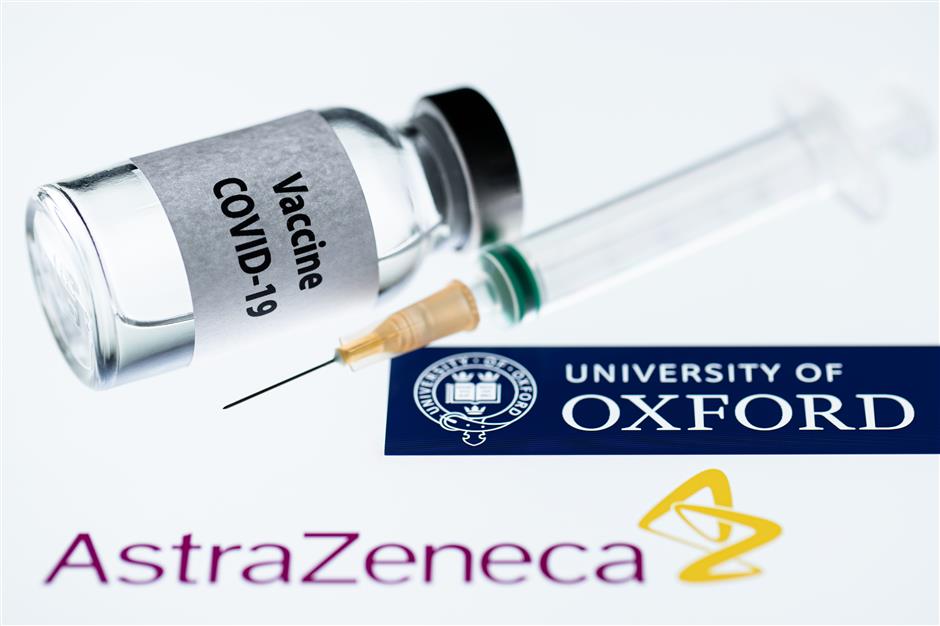AstraZeneca to supply EU with 9m additional vaccines

A syringe and a vial reading "COVID-19 Vaccine" next to AstraZeneca company and University of Oxford logos.
Pharmaceutical company AstraZeneca has agreed to supply 9 million additional doses of its coronavirus vaccine to the European Union during the first quarter, the bloc’s executive arm said on Sunday.
The new target of 40 million doses by the end of March is still only half what the British-Swedish company had originally aimed for before it announced a shortfall due to production problems, triggering a spat between AstraZeneca and the EU last week.
European Commission President Ursula von der Leyen said after a call with seven vaccine makers on Sunday that AstraZeneca will also begin deliveries one week sooner than scheduled and expand its manufacturing capacity in Europe. “Step forward on vaccines,” she tweeted.
The EU is far behind Britain and the United States in getting its population of 450 million vaccinated against the coronavirus. The slow rollout has been blamed on a range of national problems as well as slower authorization of the vaccines and an initial shortage of supply.
AstraZeneca’s announcement last week that it would initially supply only 31 million doses to the EU’s 27 member states due to production problems set off a fierce dispute between the two sides, with officials in Brussels saying they feared the company was treating the bloc unfairly compared to other customers, such as the United Kingdom.
On Friday, hours after regulators authorized the vaccine for use across the EU, the commission said it was tightening rules on exports of coronavirus vaccines, sparking an angry response from Britain.
The commission has since made clear the new measure will not limit vaccine shipments produced in the 27-nation bloc to Northern Ireland, a UK territory that was guaranteed unhindered cross-border access to the Republic of Ireland under the post-Brexit deal between Britain and the EU.
The mood among EU citizens toward Brussels has since then soured, as countries outside the bloc speed ahead in the race to vaccinate their people.
For instance, Germany has so far given at least one dose to 2.2 percent of its population. Britain has done the same for 13.2 percent of its citizens.
In response, Chancellor Angela Merkel has summoned state governors yesterday to discuss what German media are describing as a “vaccination debacle.”
Von der Leyen, who was Germany’s defense minister before taking the post in Brussels, insisted the EU had “made good progress.”

















